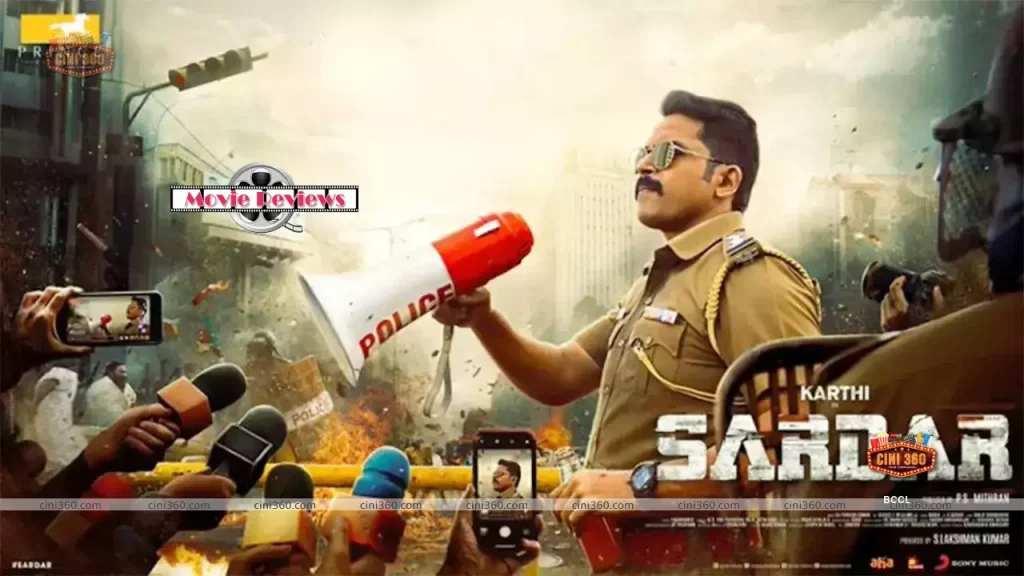Sardar Movie Synopsis: An espionage agent who has been labelled a traitor returns from exile to bring down a questionable water project and protect the country.
Sardar Movie Review: Sardar begins in 1988, with title credits in which we learn about a rogue spy. The action then shifts to the present, where we meet his son Vijay Prakash (Karthi), a publicity-hungry cop plagued by the fear of being a traitor’s son. When Samira (Laila), an activist campaigning against the privatisation of water bodies, dies mysteriously, he investigates only to discover a complex web of lies and deception that has put the nation in danger. And the only man who can stop Rathore, an evil businessman (Chunky Panday), and his nefarious plans is his superspy father (Karthi once more), who is in exile.
PS Mithran’s Sardar is a well-made spy film that, despite a familiar story arc, manages to keep us interested until the end. The director, like he did with Irumbuthirai, effectively weaves in a message about the importance of preserving our water resources and preventing them from falling into private hands without coming across as preachy. As with all of this director’s films, we get an information overload that aids in the story’s detailing.
Mithran also gives his star a number of heroic moments that feel natural rather than forced, as is often the case. At the same time, Sardar is unapologetic about being a star vehicle, and Karthi gives a strong performance as both a son shadowed by his father’s deeds and a resilient spy willing to go to any length to protect his country’s integrity. The supporting characters are all functional, serving primarily to advance the plot, but Mithran manages to make them feel integral to the film despite being archetypes – the romantic interest who assists the hero in his investigation, the good-hearted guardian, a child who provides an emotional reason for the protagonist’s mission, and so on.
If there is a flaw, it is that the film never appeals to our hearts as much as it does to our minds. When a character is betrayed, we never feel agitated. When a mass murder occurs, we never feel sad. And we never get as excited as we should when a character is introduced to the public. And, for an action film, the stunts are largely derivative and overlong, lacking the adrenaline rush we expect from such scenes.




